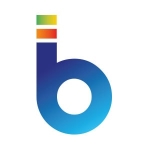What is our primary use case?
There are several different use cases. The most basic use case would be just to be able to share data from a database or a data repository. That's the most basic use case.
Microsoft Power BI is a visualization tool, is a BI tool. There are more than 1,000 use cases that you could use. There are countless use cases for which a BI tool or visualization tool could be used for.
The simplest use case is where a colleague in an organization who does not have any coding skills or does not have any technology background wants to be able to look at some data from a database or a repository of data. He or she could use Power PI just to be able to connect to that system and just take a look at or peek into that database. It is as simple as that.
How has it helped my organization?
Over the last six years, Microsoft Power BI has evolved, matured, has brought in a lot of new features. Six years back, when I first started using Microsoft Power BI, it was just one of the tools among the crowd of tools that I had access to and may not have been that interesting, at that point in time. It was fairly rudimentary and fairly basic in terms of its feature capabilities. However, in the last six years, Microsoft has put a lot of focus and effort into developing it further, and has, on a regular incremental basis, started deploying and enabling capabilities and features, which now makes Microsoft Power BI one of the leading BI tools in the industry.
We realized the benefits very quickly. In 30 minutes, a company can begin to realize the benefits.
In the most basic use case, which is for a user to be able to just access a data which he or she normally would not have been able to himself or herself, since they don't have SQL query knowledge, or they don't know how to access, log into a SQL Server or a database. They can do that using Power BI within half an hour or less.
What is most valuable?
Like any typical BI visualization tool, Microsoft has several features. The most interesting feature of Microsoft Power BI is that it's very user-friendly.
It is a cloud-based BI tool even though it does come with a desktop client. The ability for a very beginner, basic user to get started with Power BI is very easy. Even if you don't have Microsoft licenses and just want to use a tool for analyzing data, without having to share it with others, you can do that with Microsoft Power BI.
What needs improvement?
I'm comparing this with other existing and newcomer BI tools. The look and feel of the tool has, only like a month back, undergone a major change. If not, for the last five years at least, last four years at least, the look and feel have been very, very similar all the time.
It did not change much in the last four years. Barring a lot of functionalities and capabilities being added, it did not change much. The look and feel were pretty much the same. However, about a month back, the latest release of Power BI, they made some further, drastic changes to the way the buttons and the panels are set up. That said, they can do more. There are still better UI designs they can go through. I'm assuming they are focusing more on capabilities rather than look-and-feel designs.
For how long have I used the solution?
I've used the solution for six years now.
What do I think about the stability of the solution?
The solution is quite stable and we have not had any, not come across significant bugs, so far. We've only come across some features which are missing or could have been improved, like certain types of charts that were missing in the past, which are being added. Some of the advanced charts are available as a paid service from third-party partners and not available out-of-the-box. There are very unique features or some very specific capabilities that were missing or are still missing. We could always manage it by bringing in a partner to create an add-on or something like that.
What do I think about the scalability of the solution?
The solution is very scalable and we do plan to increase usage.
How are customer service and support?
We haven't opted for technical support yet as we have a few other tools which are also being used by the organization, in the new organization that I'm in, right now. Power BI was being offered to colleagues to use on a self-service basis. There were communities and subject matter experts within the organization who had offered their services to the wider organization to come and ask questions. It was basically community-based support, I would say, within the organization.
Also, Microsoft offers free community-based support for Power BI and proactive support is simply paid. It's paid service from Microsoft and other partners, so we have not opted for that yet, something we will look into once it comes to that point. Yet, it's a fairly mature product. We don't think there would be issues with the platform. The issues would be more to do with how to use the platform, or how to use the platform in conjunction with other systems, other software, et cetera, which is more specific to our organization rather than something the vendor has to support us with.
You do get your questions answered eventually, however, you have to wait maybe one or two days to get the questions answered.
How would you rate customer service and support?
Which solution did I use previously and why did I switch?
I have used more than ten to 15 different types of software in the past 20 years.
I have used Tableau and I have used Qlik Sense. These two are, I would say, the top two leading platforms. We switched completely to Power BI, however, we started using Power BI more, alongside Tableau and Qlik Sense. The organization where I used to work previously had the commercial ability to acquire multiple software, depending on use cases, or depending on business requirements, or needs. In the previous organization, the organization was using one particular platform, then they decided to bring in a second platform, then they decided to bring in the third platform. As part of that mix-and-match scenario, we ended up using Qlik Sense and Tableau. And then we also started, in parallel, using Power BI, which then started to get better feedback and reviews, in general, so we ended up using it more and more.
How was the initial setup?
It comes bundled with Office 365. Office 365 is a SaaS-based office suite. Anything that you build on your desktop or Power BI, you can publish into the Office 365 cloud environment. It's relatively easy to get everything up and running.
It's as simple as taking your credit card and buying an Office 365 license and configuring the AD group and you can be up and running. Of course, depending on how secure and structured you want to make your entire setup, it can take a few months, sometimes, with the full rollout to happen.
A very basic pilot rollout can be done in a matter of a few weeks.
For the actual deployment and configuration, we just needed five people, and five resources working between six to 12 months. Some were required only for six months. Some are still continuing as part of further enhancements as some of the resources are being retained from a training and onboarding purpose so that they can do a training of the wider organization, and colleagues in the organization, show them how to use Office 365, and get trained on that. The actual development itself took less than two or three months.
In terms of maintenance, there are regular patch updates that get pushed from Microsoft. The backend IT support team needs to ensure all the patches are tested before they're deployed in production, for all the users to use.
What about the implementation team?
Microsoft usually sells through a partner, most of these licenses, and Microsoft also usually recommends a partner. In our case, we did an RFP to bring in the subject matter experts, partners who are certified on Microsoft platforms.
We had a system integrator who came in and helped us deploy and roll out Microsoft 365. As part of that, as I mentioned, we got Microsoft Power BI.
We are now thinking if we should switch on all the other capabilities of Microsoft Power BI or not.
What was our ROI?
We have noted an ROI, however, it varies from use case to use case.
There are some use cases in which if you deliver it, the cost savings or the revenue generated from that, or the benefits from that one single use case will cover the entire cost of all 65 licenses, for the entire year.
Then there are use cases, in which you'll have to wait for a few years or months before a company will actually see some benefit being derived.
What's my experience with pricing, setup cost, and licensing?
They have made the desktop client free of cost, which is also what Qlik Sense is. The Qlik Sense Desktop is free of cost. Tableau, the web version of Tableau online, there's a trial period you can use it for. Microsoft also has made Power BI available as a free add-on, or a free complimentary add-on alongside Office 365 for corporate users. This means even if the organization does not want to use Power BI, if they're using Qlik Sense, Tableau, Looker, ThoughtSpot, Domo, or the other tools, Power BI will still be available to them when they're using Microsoft Office.
While it comes bundled with Office, you don't have to buy any additional licenses, just for building and publishing. That said, the moment you want to start sharing your reports, your dashboards, and your analysis with others, that is the point where you need to then start paying for additional capabilities or plans.
Which other solutions did I evaluate?
I've always been part of different transformation programs where we were required to evaluate a BI tool, to meet the business requirements. Usually, Power BI ends up coming in the short list of products from a BI perspective, from a BI reporting perspective, apart from sometimes Tableau, and Qlik Sense. Sometimes, we also come across ThoughtSpot, Sisense, and Domo. These are some of the other tools which we have also, sometimes, shortlisted.
The differences have become very, very minimal between solutions. There are very few, minor differences between different tools. About four or five years back, there used to be drastic capability gaps between the different tools. Four or five years back, Tableau was the most mature, followed by Qlik Sense, followed by MicroStrategy, followed by a few other tools like SAP Analytics, or a few others. Today, Power BI is alongside Tableau, and Qlik Sense is in the top three. That's based on my experience of having worked on all these three platforms. Tableau, among the three, has the best UI, user interface. Qlik has the best performance, in terms of building complex data models. Power BI, however, is the easiest and most fun to use when it comes to getting somebody to use the tool from scratch.
There are a few other benefits and strengths. Qlik Sense and Power BI, both come with built-in ETL which is data integration capabilities. They have very mature data integration capabilities, as compared to Tableau, whereas Tableau has very basic integration capabilities. You need to buy another ETL product for it to be able to do a similar level of data transformation as Qlik Sense, or Power BI.
What other advice do I have?
We are a customer and may also be a Microsoft partner, as we are a telecom.
I'd rate the solution nine out of ten.
Disclosure: My company has a business relationship with this vendor other than being a customer. Partner




















